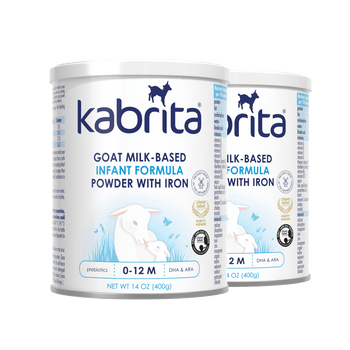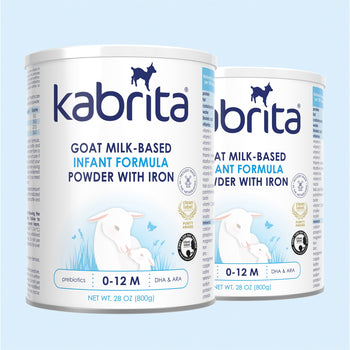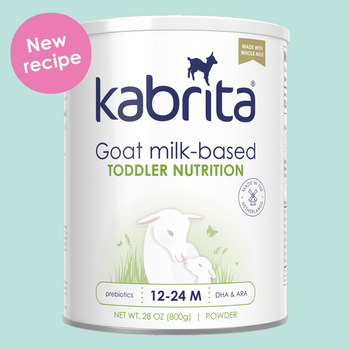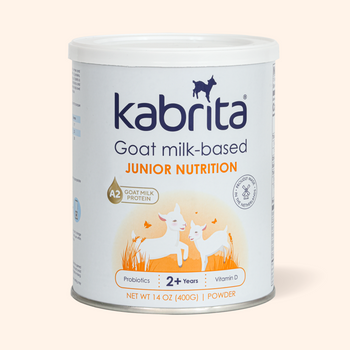Easy and Natural Tips To Reduce Toddler Eczema

No one likes seeing his or her child uncomfortable. But for families with children who have eczema, distressing, itchy rashes are all too common. Eczema in children may stem from a variety of factors, such as contact irritants, environmental allergens, and even certain foods (like cow milk). While it’s always key to address the root cause with your healthcare professional, here are our top five tips to reduce toddler eczema.
5 Tips to Reduce Toddler Eczema
-
Omega 3 Fatty Acids in the Diet May Help Reduce Toddler Eczema
Omega 3 fatty acids, including DHA, influence many different body systems, including the skin. They have an anti-inflammatory effect and may help reduce toddler eczema symptoms.

-
Food Trigger May Cause Toddler Eczema
Cow dairy may trigger toddler eczema. Use a 7-day diet diary to track eczema symptoms and identify possible triggers. If cow milk seems to be contributing to your toddler’s eczema, swap it out for Kabrita Goat Milk Toddler Formula.*
-
Moisturize!
Keeping skin moist is key to treating toddler eczema. Apply an unscented, hypoallergenic moisturizer twice per day, especially after bathing (ideally within 3 minutes). To address flare-ups, first, moisturize and then protect the skin. We like to use coconut oil along with a zinc oxide-based barrier cream.
-
Keep Nails Short
Scratching eczema patches leads to increased inflammation and itching. Reduce scratching by keeping your little one’s nails short, and using scratch mitts overnight if necessary.
-
Reduce Home Allergens
Eczema may be associated with environmental allergies. Reduce home allergens in the home by using a HEPA air filter, vacuuming often, and regularly washing bed linens with hypoallergenic detergent.
Eczema can be triggered by a long list of factors – and the ideal solution for treating eczema in toddlers is to find and address the root cause. For a more in-depth look at eczema, see Symptom Spotlight: Eczema.
Kabrita Goat Milk Toddler Formula may be an option for little ones during feeding transitions, such as weaning and supplementing, or those with minor issues associated with cow milk sensitivity*.
We encourage parents to consult their little one’s healthcare provider before making a feeding change.
*Not suitable for children with confirmed cow milk protein allergy



